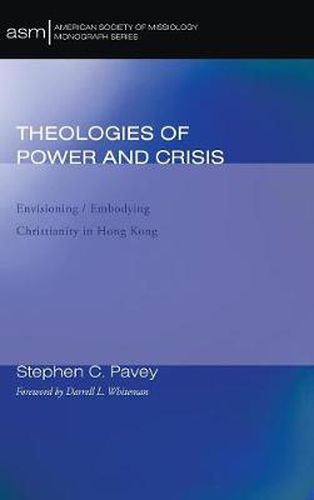Readings Newsletter
Become a Readings Member to make your shopping experience even easier.
Sign in or sign up for free!
You’re not far away from qualifying for FREE standard shipping within Australia
You’ve qualified for FREE standard shipping within Australia
The cart is loading…






This title is printed to order. This book may have been self-published. If so, we cannot guarantee the quality of the content. In the main most books will have gone through the editing process however some may not. We therefore suggest that you be aware of this before ordering this book. If in doubt check either the author or publisher’s details as we are unable to accept any returns unless they are faulty. Please contact us if you have any questions.
Theologies of Power and Crisis provides a case study for Eric Wolf’s research directive to better comprehend the interplay of cultural (webs of meaning) and material (webs of power) forms of social life. More specifically, the book demonstrates how theological discourse and practice engage with historical and material relations of power. It has been normative to speak of power in terms of political and economic processes and theology in terms of interpretive and symbolic experiences. This work breaks new ground by linking theological ideas with political-economic processes in terms of the structural relations of power. Ethnographically, this research investigates the theological processes of Hong Kong Chinese Christians during a period of significant social change and crisis, precipitated by the return of Hong Kong to China in 1997. It shows how local Christians and Christian institutions mediated the significant regional, national, and transnational forces of political-economic change by connecting theological practice to the structural relations of power. The Christian response was a contested process closely intertwined with the broader contested processes of social organization. This study develops an understanding of Christianity that goes beyond ecclesiastical hegemony to encompass struggles over human practice, meaning, and representation in relation to the changing political-economic context. These findings implicate religious ideas and practice as significant to an understanding of social inequalities and powerlessness by connecting ideologies to material conditions. Christian ideas may be used to legitimize an oppressive social order or they may be used to liberate those who are oppressed. Issues related to the policies and practice of development should take seriously the role of religious beliefs and practices.
$9.00 standard shipping within Australia
FREE standard shipping within Australia for orders over $100.00
Express & International shipping calculated at checkout
Stock availability can be subject to change without notice. We recommend calling the shop or contacting our online team to check availability of low stock items. Please see our Shopping Online page for more details.
This title is printed to order. This book may have been self-published. If so, we cannot guarantee the quality of the content. In the main most books will have gone through the editing process however some may not. We therefore suggest that you be aware of this before ordering this book. If in doubt check either the author or publisher’s details as we are unable to accept any returns unless they are faulty. Please contact us if you have any questions.
Theologies of Power and Crisis provides a case study for Eric Wolf’s research directive to better comprehend the interplay of cultural (webs of meaning) and material (webs of power) forms of social life. More specifically, the book demonstrates how theological discourse and practice engage with historical and material relations of power. It has been normative to speak of power in terms of political and economic processes and theology in terms of interpretive and symbolic experiences. This work breaks new ground by linking theological ideas with political-economic processes in terms of the structural relations of power. Ethnographically, this research investigates the theological processes of Hong Kong Chinese Christians during a period of significant social change and crisis, precipitated by the return of Hong Kong to China in 1997. It shows how local Christians and Christian institutions mediated the significant regional, national, and transnational forces of political-economic change by connecting theological practice to the structural relations of power. The Christian response was a contested process closely intertwined with the broader contested processes of social organization. This study develops an understanding of Christianity that goes beyond ecclesiastical hegemony to encompass struggles over human practice, meaning, and representation in relation to the changing political-economic context. These findings implicate religious ideas and practice as significant to an understanding of social inequalities and powerlessness by connecting ideologies to material conditions. Christian ideas may be used to legitimize an oppressive social order or they may be used to liberate those who are oppressed. Issues related to the policies and practice of development should take seriously the role of religious beliefs and practices.